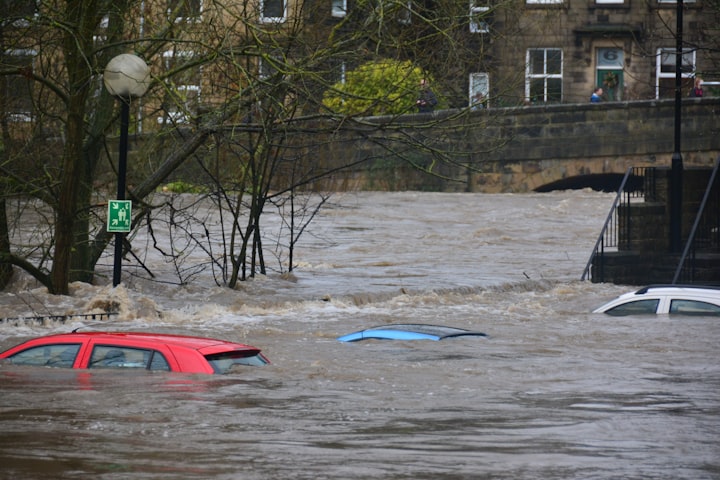Are we on the verge of a global initiative to clean up ocean plastics?
Are we on the verge of a global initiative to clean up ocean plastics?

Planet or plastic? is a multi-year plan to address this issue and how we can prevent used plastic from entering the sea. Marine plastic pollution is an environmental issue of global scope, impact, and responsibility. Waste collection and recovery are important in the short term, but long-term solutions to this problem should take into account the growing amount of plastic used.
Cleaning is an important solution to the plastic problem in our ocean, but stopping it at the well during production and distribution is important. Plastic recycling is part of the solution needed to build a round plastic economy. Recycling depends on global infrastructure, and current recycling systems are not compatible with the growing use of plastic.
Currently, only about 14 percent of the world's plastic packages are collected for recycling. Use recycled plastic, then collect, filter, recycle and convert it into new plastic. The recycling process can be mechanical (the most common type today is the use of concrete methods to separate and recycle plastics without changing the structure, thus preserving the composition of polymeric plastic) or chemicals (any recycling method chemically dissolved. Plastic). Its main polymer properties are in the components (monomers), which can be recycled with new materials).
Given the diversity of packaging, it is expected that plastics will continue to be used for a variety of purposes, so the best way is to develop an efficient and environmentally friendly plastic system. You can consider switching to something else or completely removing plastic packaging, but there have always been consequences for the entire life of the package and the system that is part of it. Analysis showed that almost all common plastic waste, including discarded food and cooked food, will not be recycled for various reasons by the collecting municipality but will no longer be processed with plastic sleeves in bottles, making it unusable.
The model was the first to measure the device's ability to extract the accumulated plastic in the ocean. To determine if the machine could be properly assembled, Hong and his colleagues built a mathematical model to mimic plastic collections at sea. A model that mimics a device advertised to remove plastic from the Great Pacific Garbage Patch, a device advertised for plastic removal in the Great Pacific Garbage Patch shows that the Great Pacific Garbage Patch will collect less than 1% of plastic waste at sea by 2150.
Ocean Cleanup says it can use the device to clean up part of its garbage in the Great Pacific Garbage Zone - a large piece of plastic waste - in five years. Ocean Cleanup is a well-known nonprofit organization that aims to clean up 90 percent of plastic. Ocean Cleanup conducts international research and develops programs for cleaning the ocean and dangerous rivers.
Holly Wyer Program Manager for Marine Pollution, Marine Protection Council Holly Wyer joined the Maritime Protection Council in March 2016 and her work includes policy development and funding new projects and research to reduce plastic pollution. Drs. Benjamin Maurer Senior National Engineer National Renewable Energy Laboratory Ben Maurer is a senior engineer at the National Renewable Energy Laboratory and leads projects under the US Department of Energy's portfolio of Powering the Blue Economy (r) related to marine management, marine management. , and recycling and recycling of plastic waste. Ben has more than 20 years of experience in marine science and genetic policy, underwater robots, underwater acoustics, liquid natural energy, renewable energy, and, more recently, plastic water pollution.
Drs. Igor Korneichuk Wilsdorf Mettler Future Foundation As an assistant and retired professor of music, Dr. Igor Korneichuk has been instrumental in efforts to clean up plastic waste at sea by helping to launch the Global Plastic Awareness Initiative, a workshop where scientists meet at various locations. earth to solve this problem. Pope Francis has solved the problem of plastic waste at sea and drew attention and action to the problem. The presentation, "Reducing the wave of plastic pollution at sea," discussed the facts and appropriateness of several international policies, using the example of banning plastic bags in Kenya.
“Plastic pollution in seas and rivers is a major environmental, economic, and health problem. Experts believe that about 90% of plastic waste enters the oceans from just 10 rivers, eight of which are in Asia.
Marine plastics can thrive in surface water, keeping them accumulated in areas far from the world's oceans. Germs can travel long distances and stay in the plastic in the ocean for a long time. An estimated 150 million tons of plastic float in the ocean and at sea, and no one knows how long it will take for plastic to decompose.
Dooley thinks this is troubling, because the amount of plastic we make that ends up in the ocean will increase over time, so the amount of plastic we can swallow may increase over time. Since 2010, I have been conducting scientific research on marine plastics to better understand their origins, overflow, distribution, and changes in the ocean environment, not only to improve scientific understanding but to find solutions to the problem.
Spaulding discusses the problems of plastic at sea, the role of plastic used, and the origin of plastic. Focus on how the countries around the Indian Ocean deal with plastic pollution and learn about the impact of small plastics on the environment and people. These numbers are pale in comparison to the amount of waste in our oceans.
Plastic waste pollutes our water, pollutes our seas, kills wildlife, and invades our rivers.





Comments
There are no comments for this story
Be the first to respond and start the conversation.